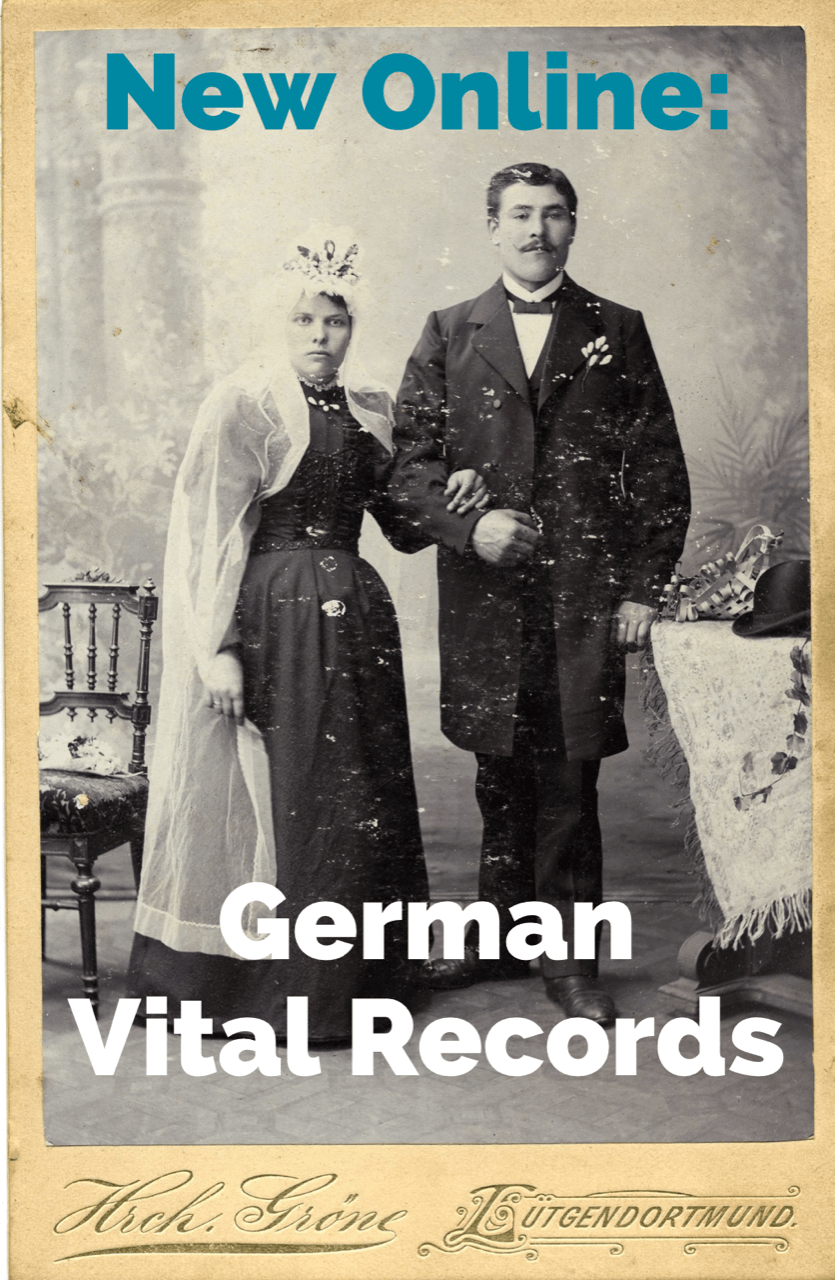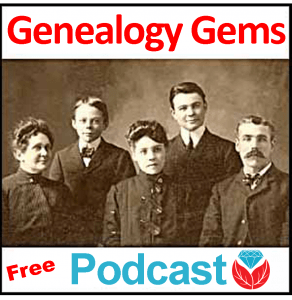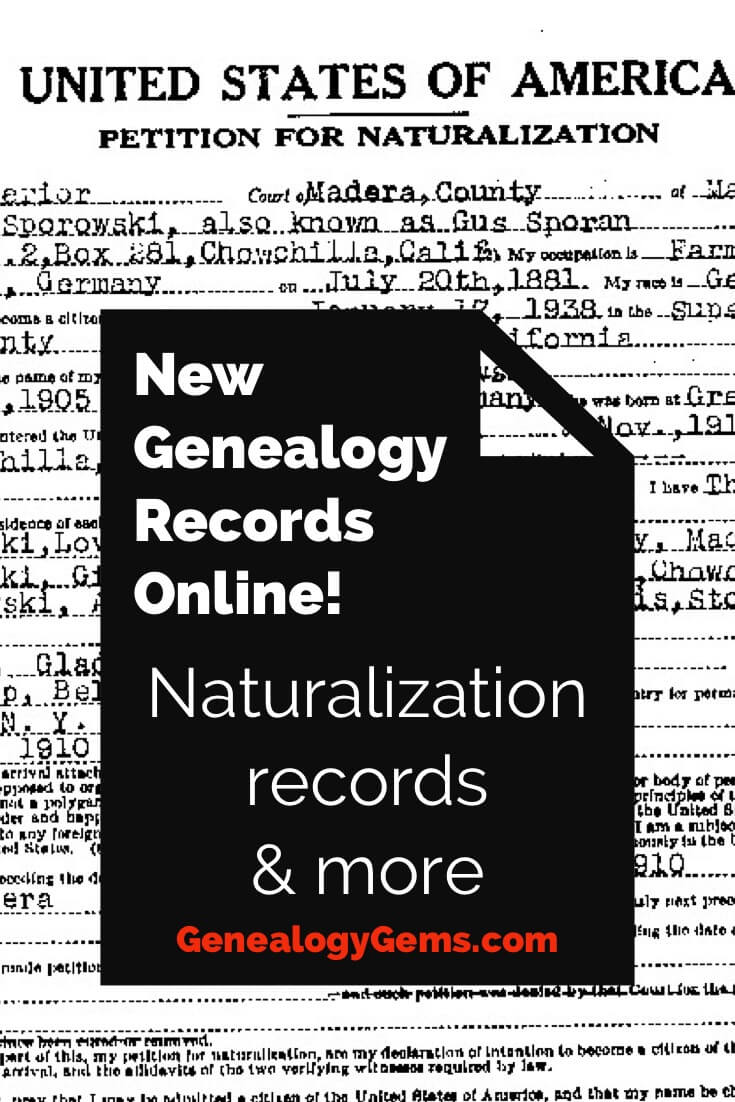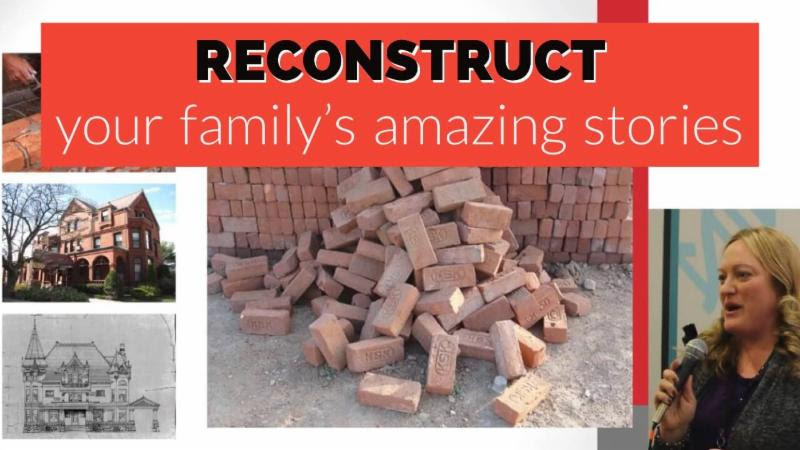by Lacey Cooke | Apr 19, 2019 | 01 What's New, Records & databases
It’s a great week for new genealogy records online! We’re featuring German vital records now available at Ancestry.com, including civil registers, parish records, and census records. You can also explore two updated Italian records collections at FamilySearch, plus check out an expert interview for tips on researching your Italian ancestors. Lastly, Findmypast is continuing to to expand their international records with a new Jamaican records collection. Happy researching!
Featured: German Genealogy Records
Ancestry.com, one of the Genealogy Giants subscription websites, has several new German vital records collections now available online. Specifically, Trier, Germany.
You can find a wealth of genealogical information in these civil registers, parish records, and census records. Look for names, dates, locations, parents and spouse names, occupations, and even some narrative comments in margins.
- Trier, Germany, Births, 1798-1904
- Trier, Germany, Baptisms, Marriages, and Burials, 1600-1798
- Trier, Germany, Marriages, 1798-1924
- Trier, Germany, Deaths, 1798-1950
- Trier, Germany, Census, 1795-1864
The city of Trier has an interesting history, and is among the oldest cities in Germany. It was founded by the Celts in the late-4th century BC and was known as Treuorum. Later on the city was conquered by the Romans in the late-1st century BC and renamed Trevorum or Augusta Treverorum.
In the Middle Ages, the Archbishop-Elector of Trier was an important prince of the church, and Trier is the oldest seat of a bishop north of the Alps. The archbishop-electorate controlled land from the French border to the Rhine. The Archbishop-Elector also had great significance as one of the seven electors of the Holy Roman Empire. You can learn more about Trier and more available genealogy records at the FamilySearch wiki page for the city here.
Additionally, there is a new collection for Barnim, Germany, Deaths, 1874-1966. The name directories are arranged alphabetically according to the last name of the deceased. They are bound as separate volumes covering several years each. They contain the following details: sequential number, last names and given names of the deceased, residence, and cross reference to death register.
Updated Italian Genealogy Records at FamilySearch
Over at the all-free website FamilySearch, two Italian genealogy records collections have been updated.
If you’re searching for Italian ancestors, check out episode #207 of The Genealogy Gems Podcast! In this episode, you’ll hear from Mary Tedesco, a co-host of PBS’ Genealogy Roadshow. Mary shares stories and tips about tracing Italian and Italian-American roots.
New Jamaican Genealogy Records Online
Lastly, we head to Findmypast for an exciting new addition to their database. While Findmypast focuses on British and Irish records, they are rapidly expanding their international collections as well!
The latest in this expansion is a big boost of genealogical records for Jamaica. The update includes five new sets encompassing over 2.4 million parish and civil register entries for births, baptisms, marriages, deaths and burials dating back to the mid-17th century.
Jamaica is divided into three counties:
- Cornwall
- Middlesex
- Surrey
Within each county are parishes, the fundamental civil administrative unit. Genealogy records in Jamaica are kept at this local level.
At Findmypast you can currently search:
These collections may help you discover your Caribbean ancestors and add a Jamaican branch to your family tree.
German Genealogy Research Tips From an Expert
Researching your ancestors deep into Germany simply doesn’t happen unless you know the name of the village of origin. In this video presentation renowned German genealogy expert James M. Beidler goes over the sources to tie your immigrant to a Heimat (Heimat (pronounced [ˈhaɪmat]) is a German word translating to “home” or “homeland” ) and then find the village and its records!
Lacey has been working with Genealogy Gems since the company’s inception in 2007. Now, as the full-time manager of Genealogy Gems, she creates the free weekly newsletter, writes blogs, coordinates live events, and collaborates on new product development. No stranger to working with dead people, Lacey holds a degree in Forensic Anthropology, and is passionate about criminal justice and investigative techniques. She is the proud dog mom of Renly the corgi.
Disclosure: This article contains affiliate links and Genealogy Gems will be compensated if you make a purchase after clicking on these links (at no additional cost to you). Thank you for supporting Genealogy Gems!
by Lacey Cooke | Nov 30, 2018 | 01 What's New, Records & databases |
U.S. Naturalization Records at MyHeritage top the charts this week for new records collections online. Over 200 million records are available for Illinois, Indiana, Iowa, Wisconsin, Connecticut, Maine, Massachusetts, New Hampshire, Rhode Island, and Vermont. Also new this week are German marriages, baptisms, and burials. Britain marriage licenses dating back to the 12th century may also pique your interest and are available online.
U.S. Naturalization Records
New this week at MyHeritage are over 200 million U.S. Naturalization Records. First is the record index for Northern Illinois, 1840-1950, containing petitions for naturalization filed in northern Illinois circuit court and INS District 9. In addition to Illinois, INS District 9 covered parts of northwestern Indiana, eastern Iowa, and southern and eastern Wisconsin. Data collected prior to 1906 was limited, likely containing just the name of the petitioner, their country of origin, and record dates and numbers. After 1906, you’ll be more likely to see records with not only names, but also addresses, birth dates, witnesses present, and date and place of arrival the U.S.
Also new is the Naturalization Record Index for New England, 1791-1906. This collection is an index of naturalization documents filed in courts in the states of Connecticut, Maine, Massachusetts, New Hampshire, Rhode Island, and Vermont from 1791 to 1906. The 3X5 inch cards in this collection contain limited information. But the 5X8 inch cards will likely contain the name of the petitioner, petition for citizenship, oath of allegiance, record of previous citizenship, place and date of birth, occupation, place and date of arrival in the United States, name of the ship, place of residence at the time of application, and name and address of a witness to these statements.
German Marriages
Genealogy Giant website Ancestry.com has a new collection of Eberswalde, Germany, Marriages, 1874-1936. Within these records, you can find a wealth of information, including names, occupations, birth date, parents, witnesses, and more. Each document has a front and back and are displayed one after the other. Additional events from the life of the couple were sometimes recorded later on in the margins, but these notes are not indexed. In addition to these civil registers, complementary alphabetical directories of names may also have been created. These directories may tell you the names of the bride and groom, occupations, residence, and cross-reference to the marriage register.
Ancestry has also recently partnered with FamilySearch to provide free access to Lutheran Baptisms, Marriages, and Burials, 1500-1971. From the collection description: “This collection contains parish registers from numerous Protestant communities and military garrisons found in former or modern German territories. The records are largely organized according to historical regions and church districts that may differ from current affiliations. These parish records primarily contain information about births and baptisms, marriages, and deaths and burials.” It’s important to note that this collection is in German, so you may want to reference the German Genealogical Word List on the FamilySearch Wiki.
Britain Marriage Licenses
If your ancestors were married in England, you’ll want to explore this great collection of Britain Marriage Licenses at Findmypast. Fifteen English counties are represented including London, Lancashire, Suffolk, Exeter, Lincoln, Yorkshire, and more, and records date back as early as 1115! These marriage licenses may be able to tell you the couple’s names, father’s name, and the marriage location. The collection consists of a mixture of more than 536,000 handwritten and typed record books from 1115 until 1906 provided by the College of Arms, Anguline Research Archives, and Gould Genealogy.
Reconstruct Your Ancestors’ Stories
When records have been destroyed, or simply remain elusive, you can still put the pieces together to discover your ancestors’ stories! In the new Genealogy Gems Premium eLearning Video, instructor Sunny Morton will show you how to reconstruct fascinating experiences from your own family history by combining clues from your family’s knowledge, documents from genealogy websites, good historical research and Googling to fill in the gaps. All while learning the riveting story of one of the worst disasters in U.S. history. Members can watch right now by clicking here. Not a member? Sign up today!
Lacey has been working with Genealogy Gems since the company’s inception in 2007. Now, as the full-time manager of Genealogy Gems, she creates the free weekly newsletter, writes blogs, coordinates live events, and collaborates on new product development. No stranger to working with dead people, Lacey holds a degree in Forensic Anthropology, and is passionate about criminal justice and investigative techniques. She is the proud dog mom of Renly the corgi.
Disclosure: This article contains affiliate links and Genealogy Gems will be compensated if you make a purchase after clicking on these links (at no additional cost to you). Thank you for supporting Genealogy Gems!
by | Nov 9, 2014 | 01 What's New, Ancestry, German, Records & databases
 Nearly 12 million German genealogy records are newly searchable on Ancestry.com! You’ll find these in more than 30 databases of civil registrations of birth, marriages, residences and deaths between 1874-1950.
Nearly 12 million German genealogy records are newly searchable on Ancestry.com! You’ll find these in more than 30 databases of civil registrations of birth, marriages, residences and deaths between 1874-1950.
Here are some of the highlights:
- around a million each of births and deaths for Berlin, and about 2 million marriages;
- over a million parish order medication online south africa register transcripts for Pomerania and Mecklenburg-Western Pomerania (some are updates to existing records);
- over 300,000 records of the Rhineland-Palatinate area (family registers, marriages and emigration registers);
- over a million vital records for Saxony.
Click here for a full description of these records, with direct links to each dataset. Happy hunting for your German roots!
by | Jul 16, 2014 | 01 What's New, Digital Archives, German, History, Newspaper
 Do you have German roots in the U.S.? Have you ever looked for them in newspapers?
Do you have German roots in the U.S.? Have you ever looked for them in newspapers?
The folks who run Chronicling America, the most comprehensive free collection of digitized U.S. newspapers, have published a new article on historical German newspapers. Here’s an excerpt:
“For decades, Germans were the largest non-English-speaking immigrant group in America. Between 1820 and 1924, over 5.5 million German immigrants arrived in the United States, many of them middle class, urban, and working in the skilled trades, and others establishing farming communities in the West. Their numbers and dedication to maintaining their language and culture made Germans the most influential force in the American foreign-language press in the 1880s – the 800 German-language newspapers accounted for about 4/5 of non-English publications, and by 1890, more than 1,000 German newspapers were being published in the United States.” (Click here to read the whole article, which includes fascinating facts about how they retooled OCR technology to read Fraktur.)
Chronicling America currently includes 23 German-language titles from 9 states. You can search German newspapers in America (or other foreign languages) by going to the Advanced Search page. Under Language, select German (or another language):
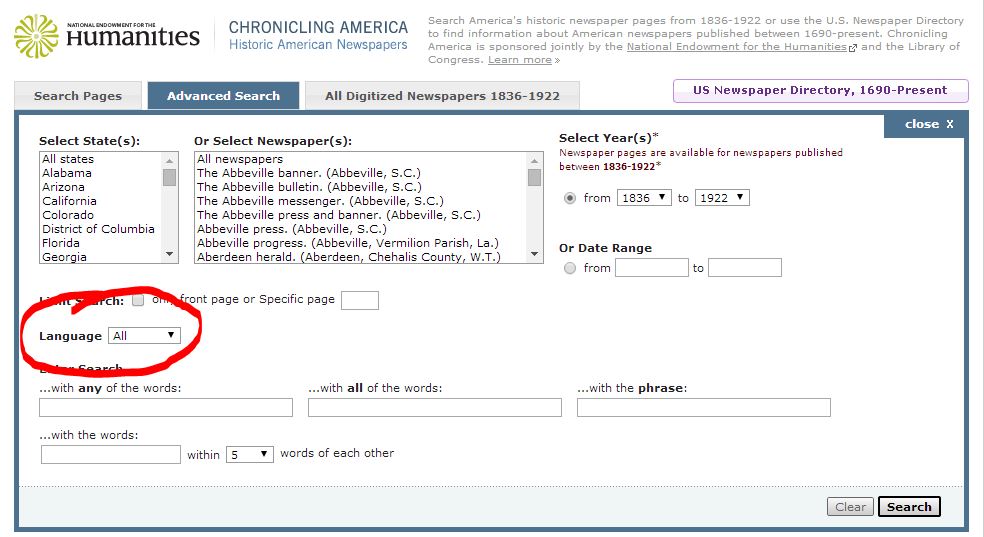
 Are you interested in learning more about newspaper research, online or offline? Read Lisa’s How to Find Your Family History in Newspapers, available as an e-book or in print. Or ask for it at your local library (if they don’t have it, they may be willing to purchase it–librarians are always looking for new titles their patrons want).
Are you interested in learning more about newspaper research, online or offline? Read Lisa’s How to Find Your Family History in Newspapers, available as an e-book or in print. Or ask for it at your local library (if they don’t have it, they may be willing to purchase it–librarians are always looking for new titles their patrons want).
